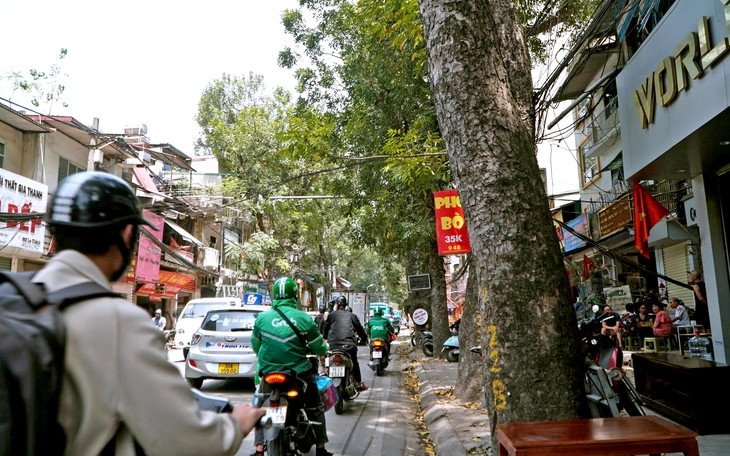
Hanoi residents react to plan for banning gasoline motorbikes in downtown by 2026
Hanoi residents have voiced mixed reactions after Prime Minister Pham Minh Chinh ordered the capital city to study a ban on gasoline-powered motorbikes within Ring Road No. 1 starting July 1, 2026, as part of a national effort to curb air pollution.
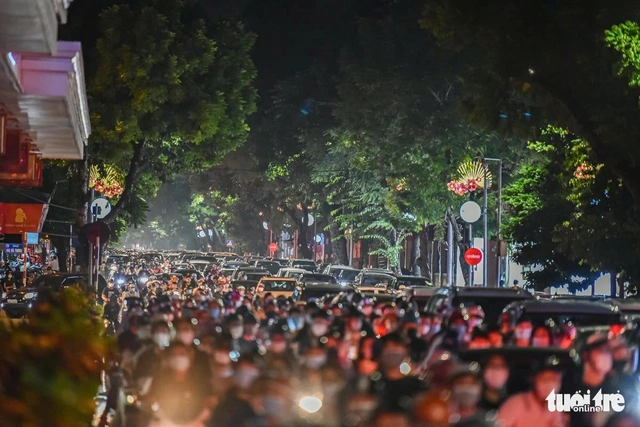
People crowd into downtown Hanoi for dining and entertainment. Photo: Pham Tuan / Tuoi Tre
Under a directive issued on Saturday by PM Chinh, Hanoi is tasked with eliminating all fossil fuel-powered motorcycles from inside Ring Road No. 1 by mid-2026.
The ban will expand in phases to cover personal gasoline cars by 2028 and all private fossil-fuel vehicles within Ring Road No. 3 by 2030.
Tran Van Truong, 32, who lives outside Ring Road No. 1 and commutes to the city center daily for work, endorses the plan.
“The ban will help keep the air clean and make Hanoi a more livable city,” he said, adding that the shift aligns with global trends.
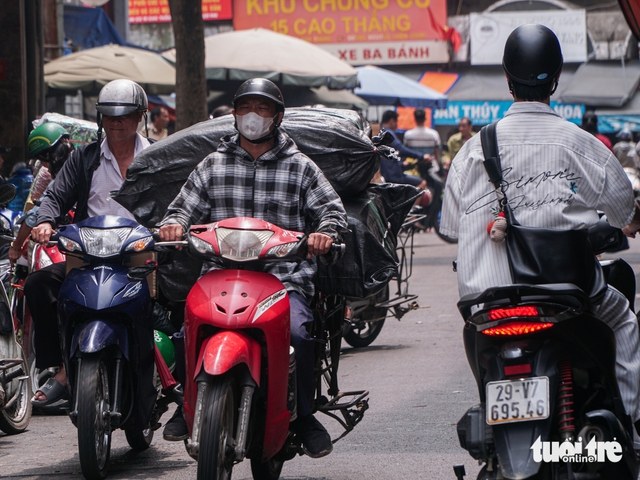
Gasoline-powered motorbikes remain the main mode of transport and livelihood for many in Vietnam. Photo: Tuoi Tre
However, others expressed concern over the short timeline and potential burden on low-income residents.
Mai Van Tam, a motorbike taxi driver in Ba Dinh Ward, said, “This is a good environmental policy, but if the ban takes effect next year, it’s too sudden.”
Tam suggested the city inspect emissions on a vehicle-by-vehicle basis and allow compliant ones to remain in use for a time.
Tam added that without financial support, many working-class residents cannot afford electric vehicles.
“What about people living outside the city center who need to enter for work?” he asked.
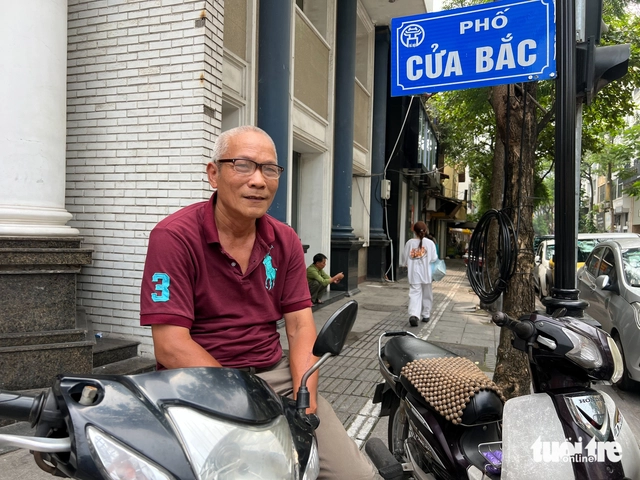
Mai Van Tam, a motorbike taxi driver in Ba Dinh Ward, Hanoi. Photo: Tuoi Tre
Tran Sy Thanh, chairman of the Hanoi administration, told a grilling hosted by the municipal People’s Council last December that the capital “must clean its air.”
The official said Hanoi would work with vehicle manufacturers to develop programs helping residents switch to electric vehicles through price reductions and loan support.
Speaking to Tuoi Tre (Youth) newspaper on Sunday morning, Associate Professor Bui Thi An, a former National Assembly deputy, called the directive 'excellent' and vital for the capital’s environmental health.
But she warned the transition would be complex.
“Motorbikes are a livelihood for many,” she said.
“Hanoi needs significant funding and infrastructure to support the shift, including widespread charging stations.”
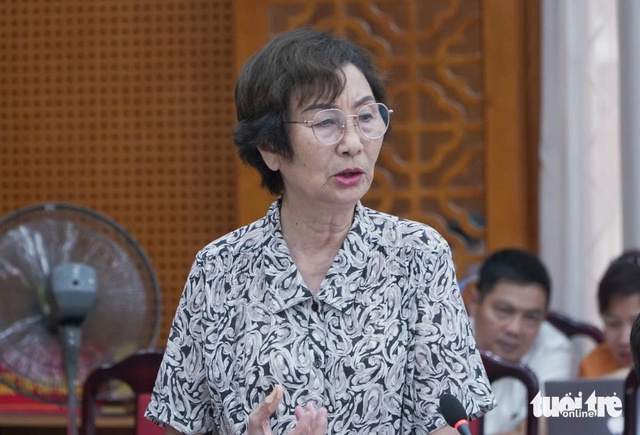
Associate Professor Bui Thi An, a former National Assembly deputy. Photo: Pham Tuan / Tuoi Tre
Meanwhile, Nguyen Xuan Thuy, former director of the Hanoi-based Transport Publishing House, disagreed with banning motorbikes outright.
“Motorbikes are cheap, convenient, and fit the narrow streets of Hanoi,” he said.
“It’s misleading to say motorbikes are the main cause of pollution.
"Ten cars can take up the space of 70-80 motorbikes.”
According to Thuy, public transportation still lacks sufficient coverage and capacity.
In 2024, the capital’s public transport systems handled only 19.5 percent of the total need, despite a network of 154 bus routes spanning roughly 3,850km and two metro lines in operation.
The city’s goal is to expand public transport to cover all major routes by 2030.
PM Chinh also required Hanoi to develop and announce a low-emission zone plan by the third quarter and try banning single-use plastics in restaurants, hotels, and eateries within Ring Road No. 1 by the final quarter.
Financial disincentives such as higher registration and parking fees for gasoline vehicles in the central area are also planned.
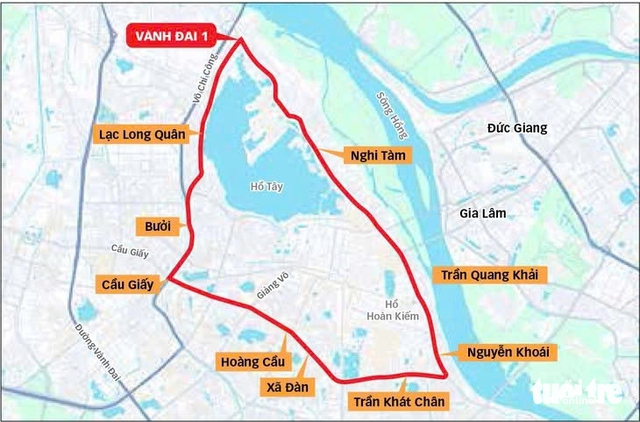
Ring Road No. 1 encircles Hanoi’s urban core. Photo: N.Kh.
Ring Road No. 1 spans 7.2 kilometers, connecting major downtown streets from Tran Khat Chan, Dai Co Viet, Xa Dan, Hoang Cau to Voi Phuc.
Once completed, it will become Hanoi’s first fully closed ring road.
Despite previous resolutions dating back to 2017 to bar motorcycles from downtown Hanoi by 2030, the new directive marks the most aggressive step yet in phasing out fossil fuel-powered vehicles in Vietnam’s capital.
Minh Duy - Pham Tuan / Tuoi Tre News
Link nội dung: https://news.tuoitre.vn/hanoi-residents-react-to-plan-for-banning-gasoline-motorbikes-in-downtown-by-2026-103250715105308825.htm
